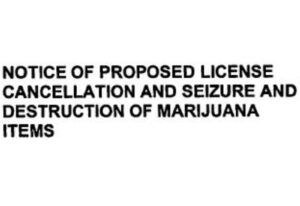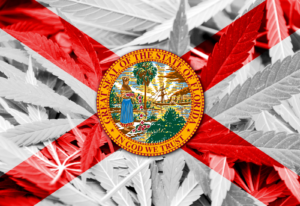 California’s legislature introduced a potentially game-changing hemp-derived cannabidiol (“Hemp CBD”) bill in January 2019: Assembly Bill 228 (“AB-228”). For those of you who aren’t familiar with AB-228, see my posts here, here, here, and here. AB-228 would change California’s anti-Hemp CBD policies, and the highlights of some of the more significant changes from the recent version are:
California’s legislature introduced a potentially game-changing hemp-derived cannabidiol (“Hemp CBD”) bill in January 2019: Assembly Bill 228 (“AB-228”). For those of you who aren’t familiar with AB-228, see my posts here, here, here, and here. AB-228 would change California’s anti-Hemp CBD policies, and the highlights of some of the more significant changes from the recent version are:
- Licensed cannabis companies wouldn’t be precluded from being in the hemp business;
- Hemp products that are foods, beverages, or cosmetics would have some minimal labeling requirements;
- Food manufacturers that make hemp products would be required to obtain certain registrations and would need to demonstrate that their hemp comes from a jurisdiction that has an “established and approved industrial hemp program” that meets all federal requirements for the sale and cultivation of hemp;
- The CDPH wouldn’t be able to conclude that foods, beverages, or cosmetics are adulterated just because they contain CBD; and
- Raw hemp products would need to undergo certain lab testing and get certificates of analysis prior to sale.
AB-228 has made it all the way through the California Assembly and part of the way through the California Senate, with almost complete support along the way. AB-228’s most recent hearing in the Senate Appropriations Committee was on August 12, 2019, during which time the bill was placed in the “Suspense File”. The Suspense File is described as follows:
The Suspense File process has been a part of the Committee Rules since the mid-1980s as a way to consider the fiscal impacts to the state of legislation as a whole. The committee analysis indicates whether a bill’s fiscal impacts meet the criteria for referral to the Suspense File.
Bills that meet the Committee’s Suspense threshold will be placed on the Suspense File after testimony is taken at a regular-order hearing. A vote-only Suspense Hearing will be held prior to the deadlines for fiscal committees to hear and report bills to the Senate Floor. Bills will either move on to the Senate Floor for further consideration or be in held in committee and under submission.
At the Suspense File hearing bills are taken up alphabetically by author. There is no public testimony.
- Adding a new definition of “industrial hemp”;
- Narrowing the scope of who qualifies as an established agricultural research institution to be more consistent with federal law;
- Requiring CA to submit a 2018 Farm Bill-compliant hemp production plan to the U.S. Department of Agriculture;
- Requiring registrations for commercial and non-commercial growers who don’t qualify as established agricultural research institutions; and
- Creating enforcement provisions, penalties for false statements on applications, and a bar on persons from being a part of the industrial hemp program if they had a conviction relating to controlled substances in the prior 10-year period.
SB-153 was recently modified further in the California Assembly, and one of the interesting new modifications is the following:
Industrial hemp shall not be cultivated on a premises licensed by the department to cultivate or process cannabis. Industrial hemp, regardless of its THC content, that is cultivated on a premises licensed by the department for cannabis cultivation shall be considered cannabis as defined in subdivision (f) of Section 26001 of the Business and Professions Code and subject to licensing and regulatory requirements for cannabis pursuant to Division 10 (commencing with Section 26000) of the Business and Professions Code.
So the message here is that California Department of Food & Agriculture licensees won’t be able to cultivate industrial hemp on their licensed premises, and that if they cultivate plants with less than .3% THC, the state will consider them “cannabis” and subject them to all state-level cannabis regulations.
SB-153 was passed off to the Assembly Appropriations Committee, but it doesn’t appear that a hearing has been set yet.
Stay tuned to the Canna Law Blog for developments on AB-228 and SB-153.























